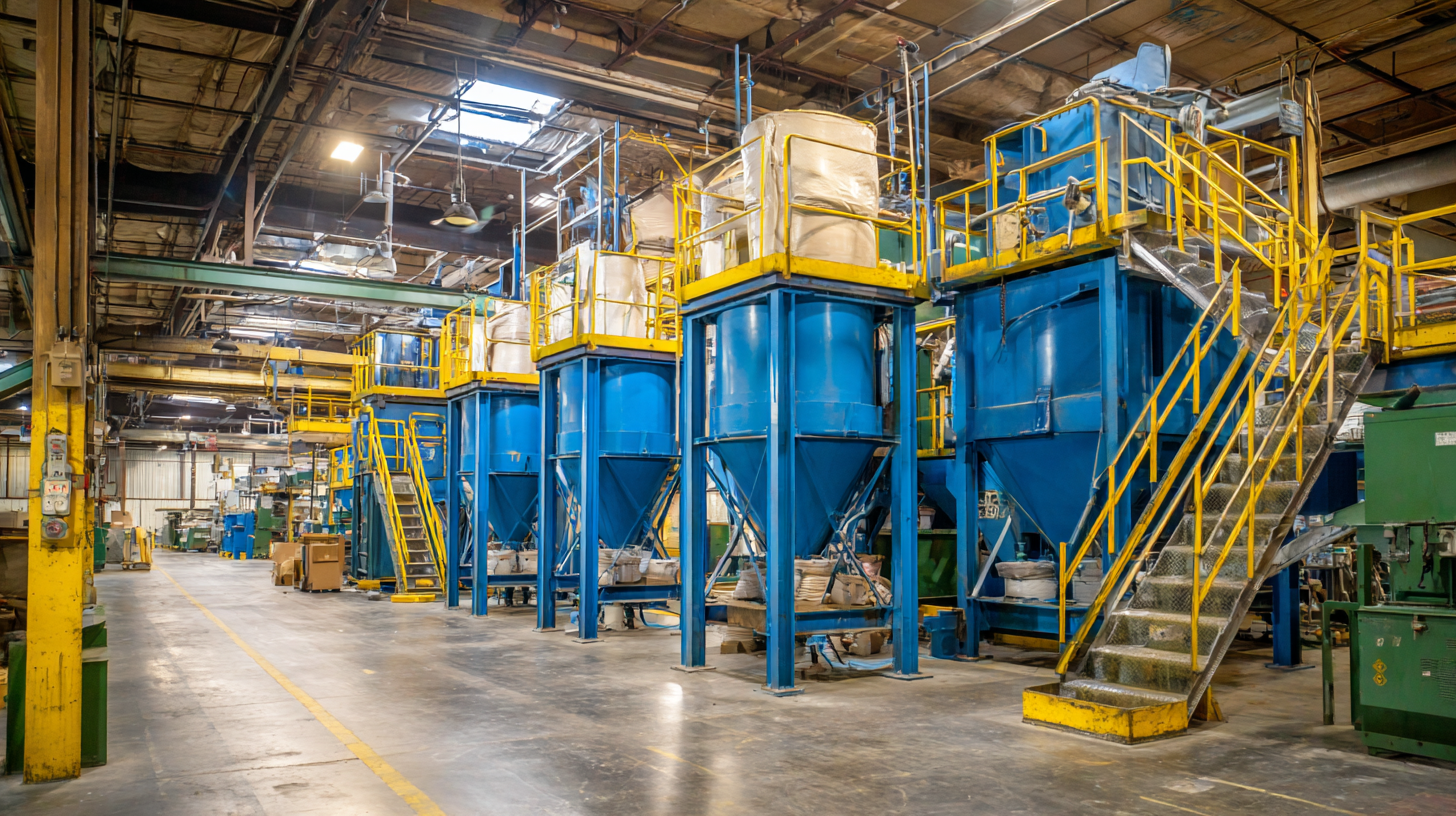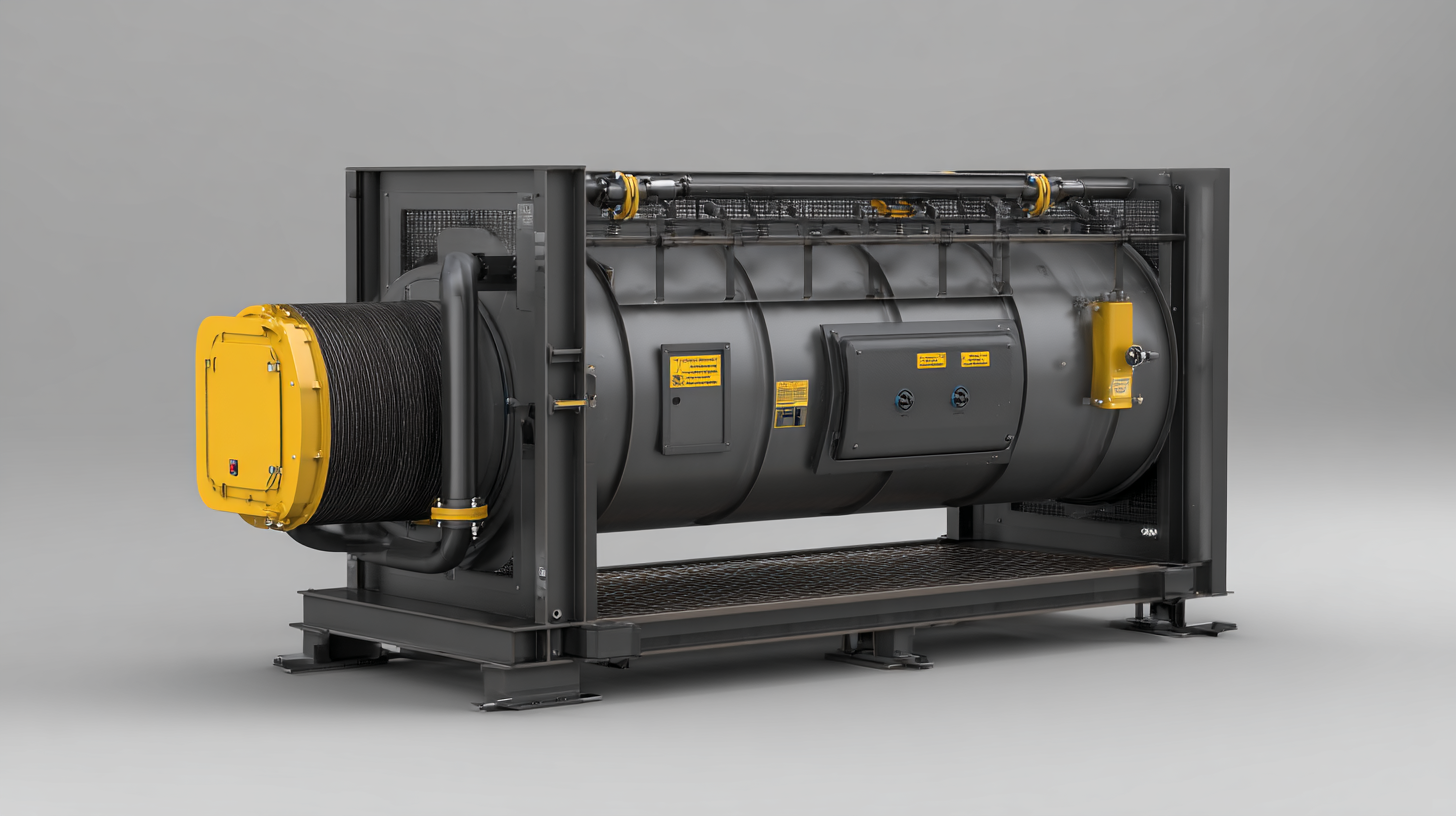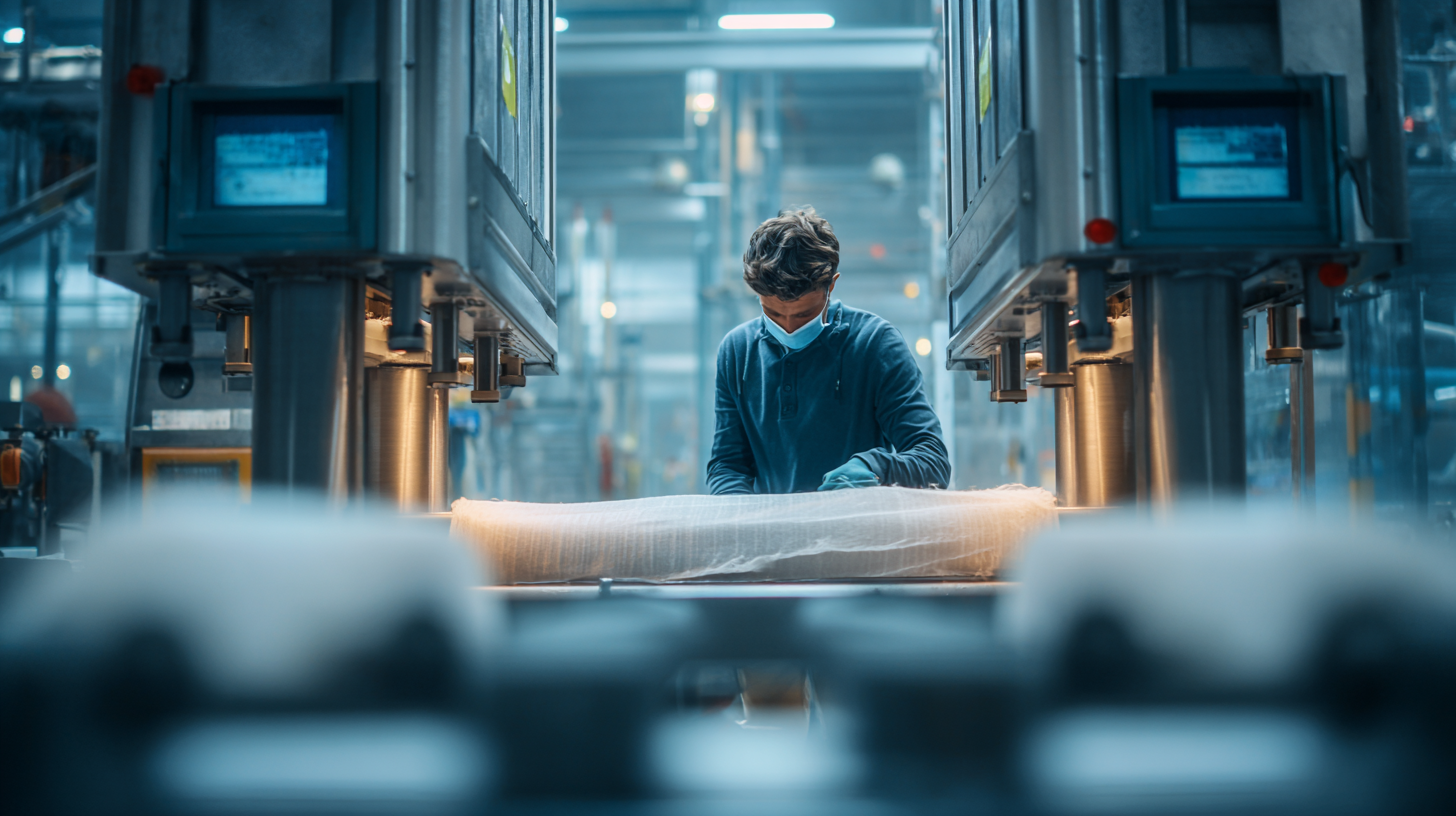Leave Your Message
Request a Quote
In today’s fast-paced industrial landscape, efficiency is paramount, driving companies to seek innovative solutions that enhance operational effectiveness. One such solution lies in the strategic implementation of filtration bags, essential tools that have revolutionized various processes within industries ranging from pharmaceuticals to food production. As we explore the myriad of real-world use cases, it becomes evident that filtration bags not only improve product quality but also optimize workflows and reduce waste. This article will delve into the multifaceted benefits of using filtration bags, highlighting how they unlock new levels of efficiency and sustainability in industrial applications. As we look towards the future of industrial processes, understanding the role of filtration bags becomes crucial for businesses aiming to stay competitive and environmentally responsible.

In the fast-paced world of manufacturing, optimizing production processes is crucial for maintaining competitiveness.
Filtration bags have emerged as a vital component in enhancing overall operational efficiency. Their primary function is to remove contaminants from liquids and gases, ensuring not only product purity but also the longevity of machinery. This translates into reduced downtime and maintenance costs, allowing companies to maximize their output.
One effective tip for integrating filtration bags into your operations is to choose the right materials based on your specific application. Different industries may require various levels of filtration, so understanding the nature of your process is essential. Additionally, regularly monitoring the performance of these bags can prevent unexpected failures, ensuring that the filtration system functions optimally throughout its lifespan.
Employing a proactive approach, such as implementing a scheduled replacement plan for your filtration bags, can further enhance production efficiency. By anticipating the needs of your manufacturing processes, you minimize the risk of blockage and maintain continuous workflow. This strategic planning not only safeguards your equipment but also contributes significantly to achieving higher levels of productivity and quality in your final products.
In the realm of industrial processes, effective filtration is paramount for achieving operational efficiency and product quality. One key filtration technique involves the use of advanced filtration bags designed to handle various materials and contaminants. These bags not only provide the necessary particle retention but also enhance the flow rates, leading to reduced energy consumption. Industries such as food processing, pharmaceuticals, and mining have successfully adopted these specialized filtration solutions, demonstrating significant improvements in performance and compliance with regulatory standards.
Another best practice in filtration is the regular maintenance and timely replacement of filtration bags. By closely monitoring the pressure drops and filter life, operators can avoid costly downtime and ensure that the filtration system functions at optimal levels. Implementing predictive maintenance strategies, supported by data analytics, allows for proactive management, minimizing disruptions while extending the life of the filtration media. As industries continue to evolve, the integration of innovative filtration technologies and practices will remain a cornerstone in driving efficiency and sustainability in industrial processes.

High-quality filtration bags are essential in industrial processes, significantly enhancing cost-effectiveness. According to a report by MarketsandMarkets, the global market for industrial filtration is expected to reach USD 40.8 billion by 2025, driven by the increasing demand for efficient filtration solutions. Investing in premium filtration bags can reduce overall operational costs by minimizing waste and downtime. Industries that utilize these bags often report a decrease in filter replacement frequency, allowing for uninterrupted production cycles and significant savings on labor and materials.
**Tip:** When selecting filtration bags, consider the material and mesh size. Premium materials may involve a higher upfront cost, but they can deliver superior performance and longevity. This can lead to lower total cost of ownership (TCO) over time, as fewer replacements are needed.
Moreover, high-quality filtration bags contribute to improved product quality. A study from the Filtration Society indicates that using effective filtration can lower contamination levels by up to 90%, ensuring that final products meet strict industry standards. This not only enhances customer satisfaction but also reduces costs associated with product recalls and rework.
**Tip:** Regularly evaluate the performance of your filtration systems. Establishing a routine maintenance program and monitoring filter pressure drop can help identify when to replace filtration bags, ensuring optimal efficiency and cost savings.
The increasing importance of environmental sustainability has pushed industries to adopt advanced filtration systems that significantly reduce waste. Traditional filtration methods often lead to the generation of considerable byproducts, which can harm both the environment and operational efficiency. However, modern filtration technologies have emerged, enabling industries to minimize waste production while maintaining high performance. By investing in innovative filtration bags, companies can ensure that contaminants are effectively captured without leading to excess waste. These advancements foster a more responsible approach to industrial processes, aligning them with global sustainability goals.
Moreover, the shift towards advanced filtration systems not only enhances environmental protection but also improves overall operational efficiency. Efficient filtration systems reduce energy consumption and lower maintenance costs, benefiting businesses both economically and environmentally. By filtering out unwanted particles at an optimum rate, these systems ensure that processes run smoothly with less downtime. This dual advantage of reduced waste and enhanced efficiency positions advanced filtration technologies as a pivotal element in modern industrial practices, paving the way for a more sustainable future.

In various industrial sectors, filtration bags play a pivotal role in enhancing operational efficiency and ensuring product quality. For instance, a case study in the food and beverage industry revealed that implementing high-performance filtration bags reduced contamination levels by over 40%, significantly improving compliance with health regulations. According to a report from the Food Safety Authority, cleaner production processes attributed to effective filtration not only boosted product quality but also decreased waste disposal costs by up to 25%.
Similarly, in the pharmaceutical industry, the use of specialized filtration bags allowed for the removal of particulates and microorganisms, resulting in a 30% reduction in batch rework due to contamination issues. A 2022 industry analysis highlighted that companies adopting advanced filtration systems experienced a marked improvement in processing time and output efficiency, with some reporting production increases of nearly 20%. These case studies exemplify the critical role filtration bags play across various industries, driving performance improvements and fostering compliance with stringent industry standards.
| Industry | Application | Filtration Bag Type | Key Benefits | Efficiency Improvement |
|---|---|---|---|---|
| Food and Beverage | Juice Filtration | Polyester Filter Bags | Enhanced clarity and purity | 30% reduction in sediment |
| Pharmaceutical | Active Ingredient Recovery | Micron Filter Bags | Improved yield and compliance | 15% increase in recovery rate |
| Chemical | Solvent Filtration | Non-woven Filter Bags | Higher dirt holding capacity | 20% longer operating time |
| Water Treatment | Sewage Treatment | Polypropylene Filter Bags | Effective removal of suspended solids | 25% reduction in treatment costs |
| Textiles | Dye Filtration | Bacteria Resistant Filter Bags | Reduced color contamination | 18% increase in dye yield |

